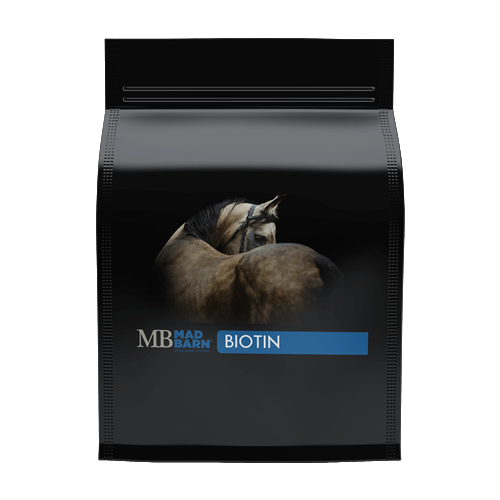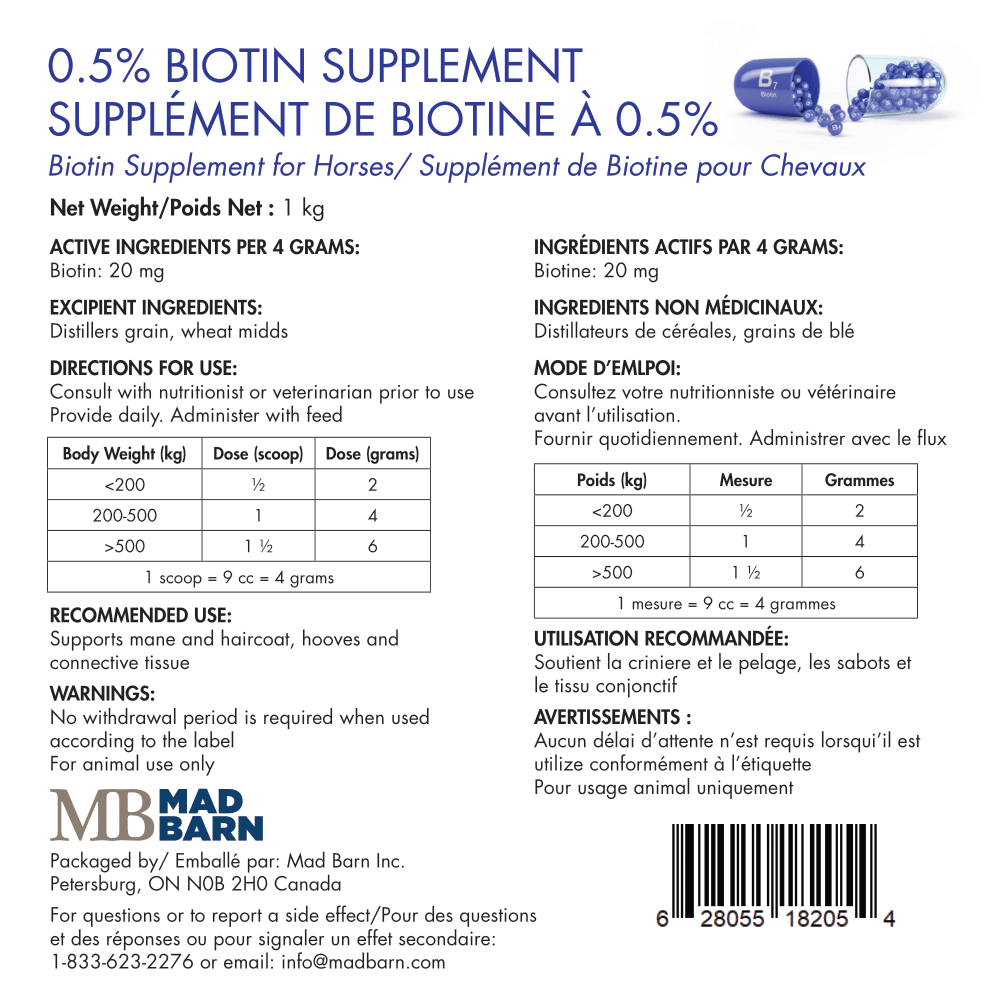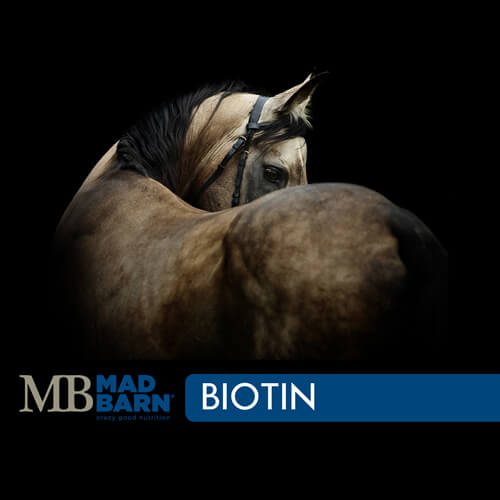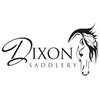MADBARN
MADBARN- BIOTIN 0.5% FP - 1 KG
Couldn't load pickup availability
Biotin is a water-soluble B vitamin that support strong hooves and connective tissue like ligaments and tendons. Biotin is required to synthesize keratin and supports a healthy coat and skin. Supplementing 20 mg per day can enhance hoof growth and quality.
Mad Barn’s bulk Biotin powder is a B vitamin supplement used to support healthy hooves and coat quality. It is highly palatable and easy to feed.
Biotin, also known as Vitamin B7, acts as an enzyme cofactor. This means it supports the function of many enzymes, including those involved in carbohydrate, fat, and protein metabolism.
Biotin supports the production of keratin which is the most important structural protein in hooves. Biotin supplementation helps horses have optimal levels of keratin in their hooves, hair, and connective tissue, which supports their structural integrity and growth.
Because it is present in such small quantities in most feedstuffs, the supplementation of biotin is recommended for horses with hoof issues. Horses with weak joints or poor coat and skin might also benefit from supplementation.
Feeding supplemental biotin is recommended for horses with dry, cracked or brittle hooves, horses that pull shoes often or horses with chronic laminitis. Horses that are recovering from laminitis or seedy toe might benefit from biotin to speed up hoof growth and quality.
Horses and other mammals cannot synthesize biotin in their cells, and therefore it is required in their diet. Biotin is found in small amounts in forage and can be produced by microbes in the horse’s gut.
Fresh alfalfa has the highest levels of biotin, whereas grains like oats, barley, soybean meal and corn have moderate to low levels. Horses that are on prolonged high-grain diets or consuming mostly dried hay are likely to benefit from supplemental biotin.
The microbes of the hindgut produce a small amount (1-2 mg per day) of this vitamin which can be absorbed for horses to use. Horses that have hindgut issues related to high-grain intake, colic, oral antibiotics, or old age, might benefit from biotin supplementation to make up for poor production by the hindgut.
A strict biotin requirement has not been worked out in horses. However, studies have shown that at least 20 mg per day should be fed for a typical 500 kg horse to see benefits for hoof growth and hoof strength.
A single scoop (4 grams) of Mad Barn’s Biotin powder provides 20 mg of biotin. Our complete mineral and vitamin supplements Omneity and AminoTrace+ also provide 20 mg of biotin per serving, so it is not necessary to feed additional biotin if your horse is already on one of these products.
Biotin deficiency is extremely rare in mammals and has not been reported in horses. However, suboptimal levels have been linked to persistently poor hoof quality like soft white line, crumbling and fissured horn had.
In one study, horses supplemented with 10-30 mg of biotin per day had improved hoof wall integrity and hardness and had faster hoof wall growth. [1]
It may take up to eight months of daily supplementation to see definitive benefits to hoof quality. This is because hoof growth and replacement of poor-quality tissue is a slow process. There may also be other factors like insulin resistance, recurrent laminitis and seasonal changes that are affecting your horse’s hoof quality.
A balanced approach with regular, high quality hoof care and a well-balanced diet is likely to be most beneficial for hoof health.
Biotin is very safe for horses. There have been no reported cases of biotin toxicity in horses. Horses could likely tolerate up to 100 times their daily requirement, based on studies in other animals.
Consult your veterinarian for assessment of copper or zinc deficiency. You should always consult a qualified nutritionist before altering your feed program. Submit your horse’s diet for analysis online and one of our equine nutritionists will be happy to provide a complementary review.
REFERENCES
- NRC 2007. Chapter 6: Vitamins. Nutrient Requirements of Horses 6th Edition. 2007.






